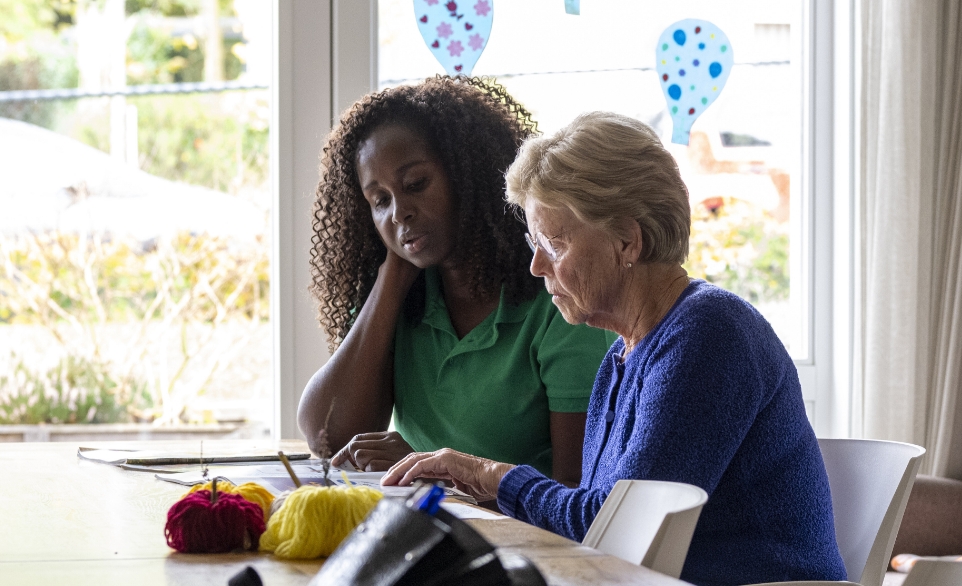
When you’re a carer, time can feel like your most precious (and most elusive) resource. From medication rounds to meal prep, emotional support to paperwork — every day is a balancing act. Add in personal responsibilities, maybe children or a second job, and it’s no wonder so many carers say they feel like they’re running on empty.
But here’s the good news: time management isn’t about doing more — it’s about doing what matters in a way that works for you. At Big Sister, we believe that even small shifts in how you manage your time can have a massive impact on your stress levels, productivity, and overall wellbeing.
In this blog, we’ll walk you through:
- Why traditional time management advice often doesn’t work for carers
- Common time traps in care work
- The Carer-Smart Method for organising your day
- Practical tools and habits to reclaim your time
- How to build a flexible but structured routine that supports your resilience
Let’s help you go from overwhelmed to organised — without adding pressure to your plate.
Why “Standard” Time Management Doesn’t Fit Care Work
Most time management advice is designed for people with consistent routines, set lunch breaks, and control over their calendar. That’s not the reality for frontline carers.
Your days are unpredictable. Appointments run late. Clients have emergencies. Your own needs often come last. That’s why carers need a different approach — one that’s flexible, compassionate, and focused on control where it’s possible, not perfection.
The 5 Biggest Time Traps for Carers
Before we can fix it, let’s name it. Do any of these sound familiar?
-
“I’ll just quickly…” syndrome
You intend to take a break, but instead you squeeze in a “quick” task — and suddenly an hour’s gone.
-
No prep = chaos
Without a basic plan, your day runs you. That means more stress, missed tasks, and forgotten meals.
-
Multitasking overload
You’re cooking, texting, filling out a logbook, and checking on a client — all at once. You end up exhausted and less effective.
-
Saying yes to everything
Boundaries blur, and suddenly your shift is two hours longer — again.
-
Lack of recovery time
You rush from shift to shift with no buffer. That’s not sustainable.
The Carer-Smart Method for Time Management
We developed this flexible five-part method for real-world carers. It works whether you’re in domiciliary care, residential settings, or juggling care with parenting.
C – Clarify Your Priorities
Start each day with a “must-do” list of 3–5 items. What would make today feel successful?
- Medication round
- Call doctor
- 10-minute lunch for you
Be realistic. You’ll feel more in control when you’ve nailed the essentials.
A – Anticipate What Could Derail You
Look at your day ahead. What could throw it off? Traffic? A demanding client? Tech issues?
Build in a buffer (even 10 minutes between tasks), so you’re not constantly playing catch-up.
R – Rely on Routines
Habits save mental energy. Morning prep, end-of-day paperwork, packing your bag the night before — these become anchors, even in chaotic days.
E – Eliminate What Doesn’t Matter
Not everything is urgent. Ask: Is this helping my client? Is this helping me do my job better?
Delegate or delay non-essential tasks.
R – Recharge Intentionally
Build micro-breaks into your day — even five minutes for a tea or a walk around the block. You’ll return clearer, calmer, and more effective.
Tools That Help You Stay Organised
A Basic Planner (Digital or Paper)
Block out fixed commitments first — then add the “must-dos” of the day. Colour coding helps (clients, personal, admin, etc.).
Phone Alarms for Tasks
Set reminders for key medication times, calls, or breaks. It takes the pressure off your memory.
Weekly Meal & Shift Plan
Plan meals ahead, especially if you work shifts. Keep grab-and-go food on hand to avoid skipped meals or drive-thru dinners.
Task Lists with Priorities
Use the 1–3–5 rule:
- 1 big task
- 3 medium tasks
- 5 small tasks
Ticking off even the small ones builds momentum.
Use Voice Notes
Too busy to write? Record tasks, reminders, or emotional thoughts on your phone to revisit later.
Tips for Managing Shifts More Smoothly
If You Work in Domiciliary/Homecare
- Plan your route the night before (or use route-planning apps).
- Keep a kit in your car (snacks, paperwork, chargers).
- Give yourself 10–15 minutes between visits if possible.
- End each visit with a checklist to avoid double-back calls.
If You Work in Residential Care
- Communicate clearly with the shift team — divide tasks, don’t duplicate.
- Use a whiteboard or shared log to track priorities.
- Have a calm-down space for when the floor gets too chaotic.
- Protect your breaks like appointments — you need them.
How to Build a Flexible Routine That Works
Flexibility doesn’t mean lack of structure — it means smart structure that adjusts when needed.
Start with Anchor Points
Wake-up time, key meals, shift start/finish, bedtime. Build around these with time blocks, not rigid hour-by-hour plans.
Theme Your Days
If your week includes admin, family duties, errands — assign them days:
- Monday = client calls
- Wednesday = food shop
- Saturday = rest + batch cooking
This reduces decision fatigue and keeps you focused.
Plan the Night Before
Each evening, take 5 minutes to check your calendar, pack your bag, and mentally prep. Your morning self will thank you.
Final Word: It’s Not About Being Perfect — It’s About Being Prepared
As a carer, you’re constantly showing up for others — often at the expense of your own peace of mind. But remember, structure creates space. The more you streamline your day, even in small ways, the more time and energy you free up for rest, joy, and being the version of yourself you want to bring to the job.
Time management doesn’t mean squeezing in more. It means prioritising what matters, protecting your energy, and feeling like you’re in charge — not just reacting.
At Big Sister, we know how hard this job is — and how incredible you are for doing it. If you need support, community, or just a better system to manage the madness, our Resilient Carers playlist on YouTube is full of practical tips to help you feel less alone.
Want more tools like this?
Head to @bigsistercare on YouTube and check out the Resilient Carers series for videos that support your body, brain, and boundaries.













